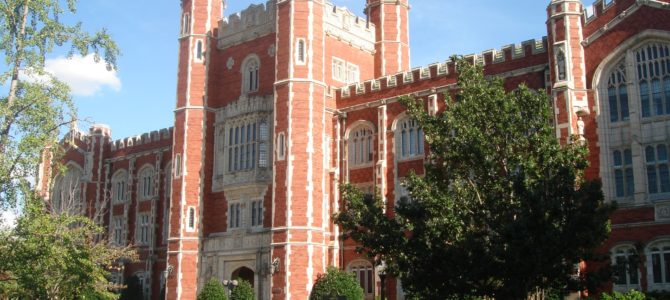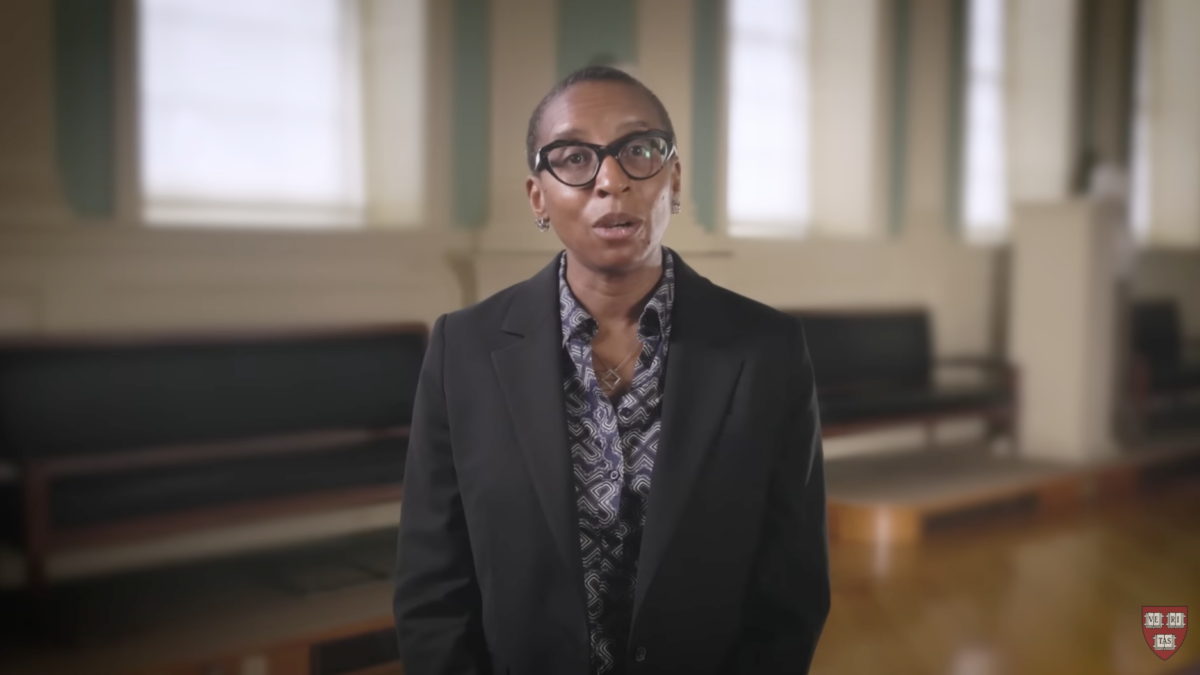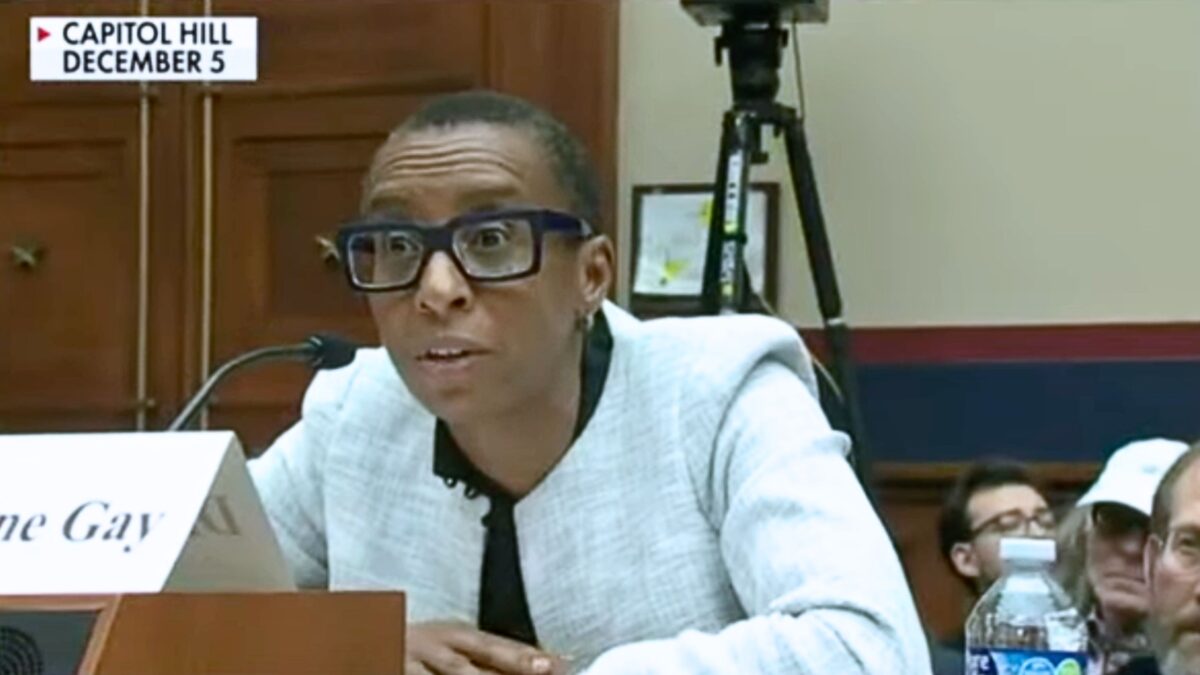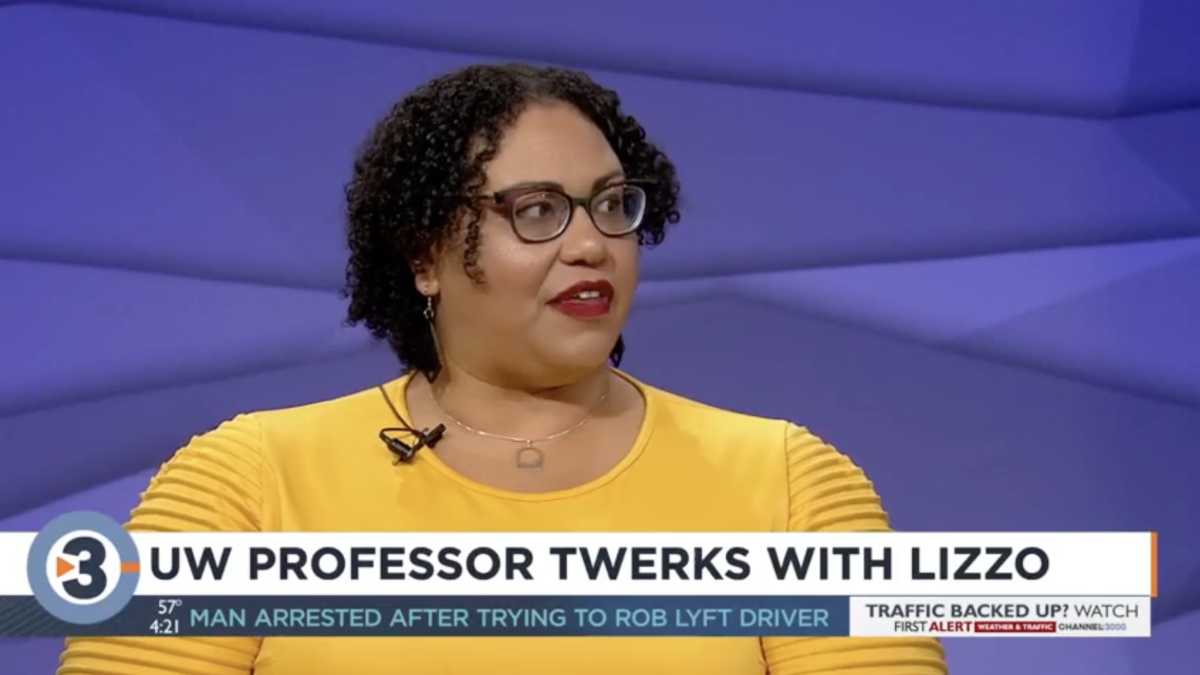
According to newly released video footage, University of Oklahoma instructors want to punish students who defy campus orthodoxy. Their plan is to “avoid ‘a rhetoric of dysfunctional silence’ that closes ears to marginalized voices,” by — you guessed it — silencing marginalized voices.
On Tuesday, the Foundation for Individual Rights in Education (FIRE), a nonprofit focused on protecting campus free speech, publicized video footage of an April 14 workshop on “Anti-Racist Rhetoric & Pedagogies” at the University of Oklahoma (OU). The workshop’s leaders presented slides about “systemic racism,” “white privilege,” and “subverting white institutional defensiveness.” In an attempt to teach so-called antiracism, the workshop’s leaders also promoted censorship and indoctrination.
The event was “one of nine professional development workshops for instructors and grad students” at OU. During the workshop, three faculty members taught their colleagues “how to foster an anti-racist environment in their classrooms,” brainstorming tactics for dissuading, censoring, and penalizing “problematic” speech.
BREAKING:
A recording of an “Anti-Racist Rhetoric & Pedagogies” workshop acquired by FIRE raises alarm bells about the state of free expression and conscience at @UofOklahoma.https://t.co/8DXLXnaqbf pic.twitter.com/JkU5JMEOel
— FIRE (@TheFIREorg) June 22, 2021
One of the workshop’s spokeswomen, Kelli Pyron Alvarez, said she prohibits “white supremacist ideas or sources” as well as “derogatory remarks, critiques, and hate speech” from her classroom — unless, of course, students use them to be “antiracist” crusaders against racism. Pyron Alvarez failed to explicitly define the ideas and sources she forbids, but she plans to reprimand those who deviate from her script.
“If [students] use any of those things, if any of those come through in their writing or in their comments, I will call them out on it,” she explained. And if a student errs in front of her a second time, she wants him to be formally reported. “In the classroom, free speech does not apply,” she said.
Unsurprisingly, Pyron Alvarez noted that her students didn’t challenge her method of teaching last semester. She successfully chilled all dissenting speech.
“Imagine being an OU student who is ‘reported,’ presumably to the administration, simply for your choice of text to analyze or what sources you include in a bibliography,” FIRE wrote in response, highlighting the absurdity of promoting such an intolerant snitch culture. According to FIRE, OU’s workshop “raises alarm bells about the state of free expression and freedom of conscience at Oklahoma’s flagship university.”
“The workshop in question trains instructors on how to eliminate disfavored but constitutionally protected expression from the classroom and guide assignments and discussion into preferred areas — all for unambiguously ideological and viewpoint-based reasons,” FIRE emphasized.
For example, students in Principles of English Composition must choose independent research projects, but FIRE explained that “the faculty conducting the training show the participants how they might lead students not only to topics the instructors find appropriate, but also to the side of the argument that the instructors prefer.”
OU instructors exist in an academic climate that seemingly emboldens them to continue dictating student speech. Pyron Alvarez confidently celebrated the power she thinks she and her colleagues exert over those they teach. “One of the fears is that we’re going to get in trouble for this, right? Like we can’t tell students that they can’t say something in class. But we can! And let me tell you how,” she bragged.
Her colleague and fellow workshop spokeswoman Kasey Woody, who is confident she and her colleagues won’t suffer consequences for promoting student censorship, elaborated: “I, in this case, usually look for my students who might be, like, entertaining the idea of listening to a problematic argument. Then I say, ‘We don’t have to listen to that.’”
“That’s right,” FIRE wrote, “even thinking about listening to a disfavored argument is apparently to be discouraged.” Students can’t write about “unacceptable” topics, such as “whether refusing to use preferred pronouns is hate speech” or whether Black Lives Matter should “engage in property destruction.”
Meanwhile, Pyron Alvarez wrongly thinks the Supreme Court emboldens her to silence disfavored speech. “The Supreme Court has actually upheld that hate speech, derogatory speech, any of the -isms do not apply in the classroom because they do not foster a productive learning environment,” she claimed. “And so, as instructors, we can tell our students: ‘No, you do not have the right to say that. Stop talking right now,’ right?”
FIRE disagrees. “Professors cannot abuse their power to require students to personally adhere to a particular viewpoint or ideology,” the organization said.
Of course, FIRE spends a significant amount of its own time and resources defending the academic freedoms of university faculty. Such individuals possess “wide latitude to manage the atmosphere and tone of the classroom,” something FIRE often describes in great detail.
FIRE, however, makes a distinction. “As the AAUP has written, instructors have academic freedom of ‘instruction, not indoctrination.’” Furthermore, “there’s no question that a significant amount of this workshop teaches participants how to indoctrinate instead of how to instruct.” The workshop leaders mistakenly “conflate disagreement with disruption to such an extent that they call it a valid reason for reporting students for discipline.”
This isn’t the first time FIRE has criticized OU for — to use the workshop leaders’ own terminology — “problematic” initiatives, and the organization says the university’s “[s]tudents deserve better.” To demand change, FIRE is collecting submission forms to “let leaders in Oklahoma know that this type of indoctrination is not acceptable.”
Readers can view the full video of the workshop here.
Watch the full video and take action: Demand that @UofOklahoma stop infringing on students’ rights to free speech and conscience.
Full video: https://t.co/p0XOAxKoLt
Take action:https://t.co/A0C9PLQPqW
— FIRE (@TheFIREorg) June 22, 2021









